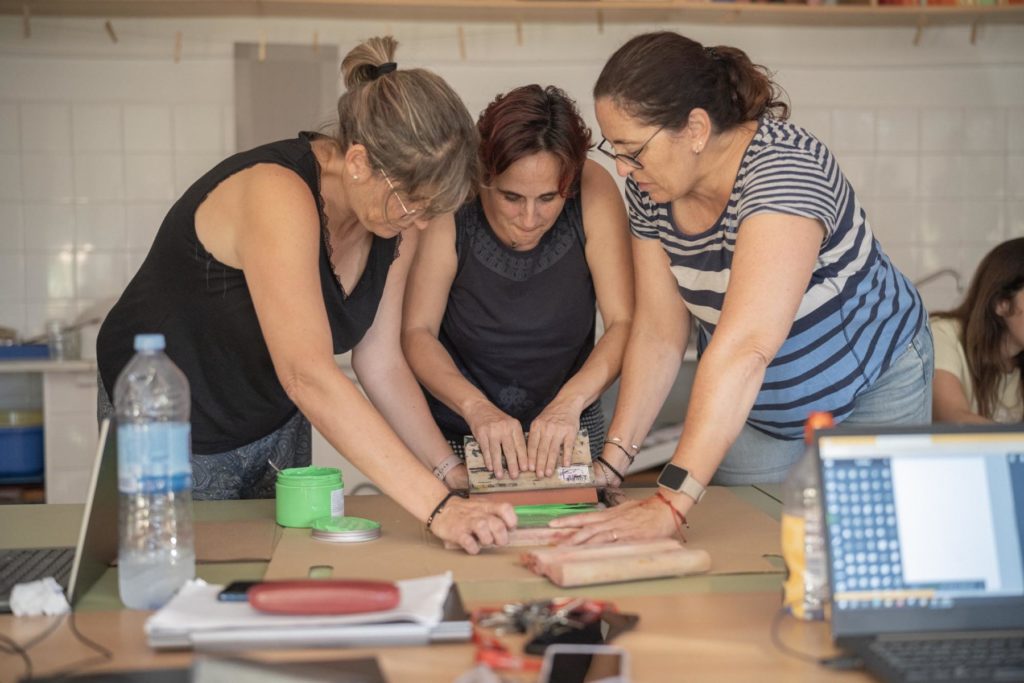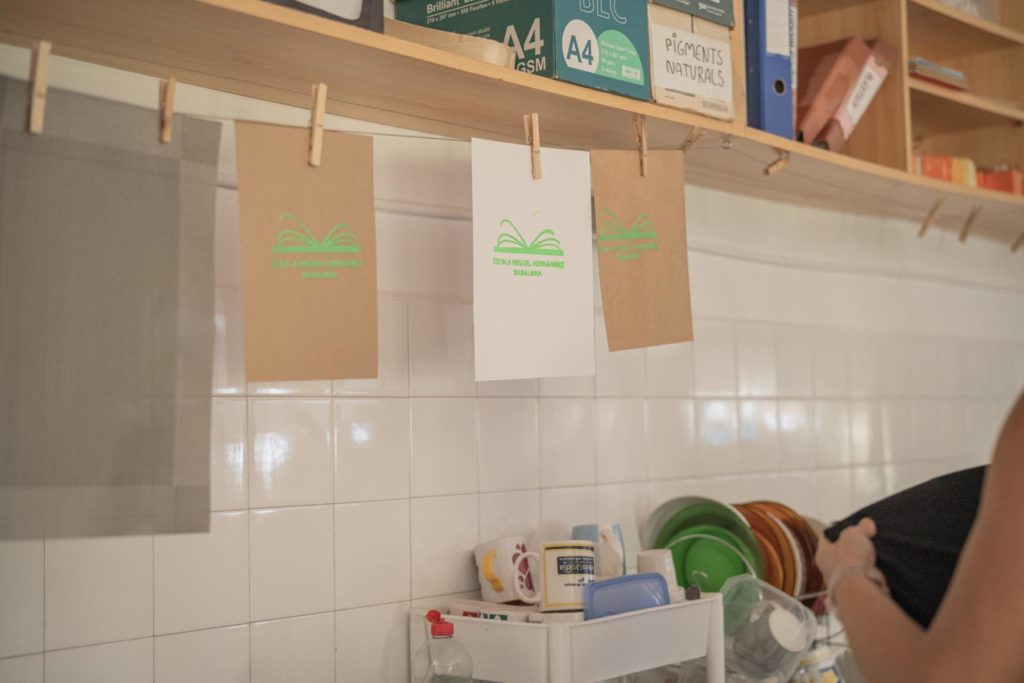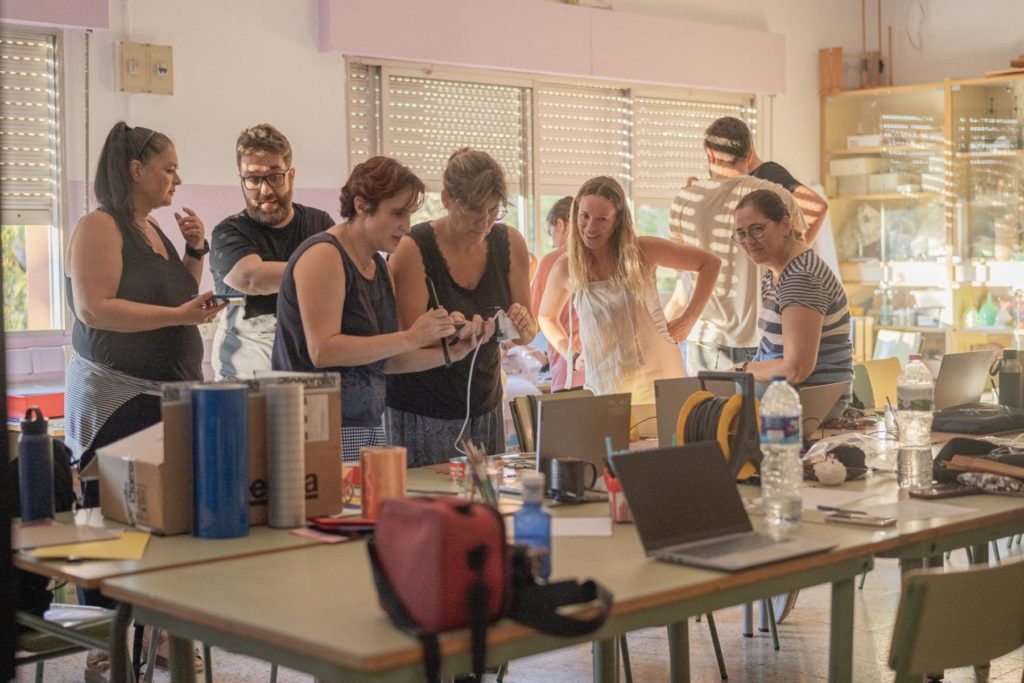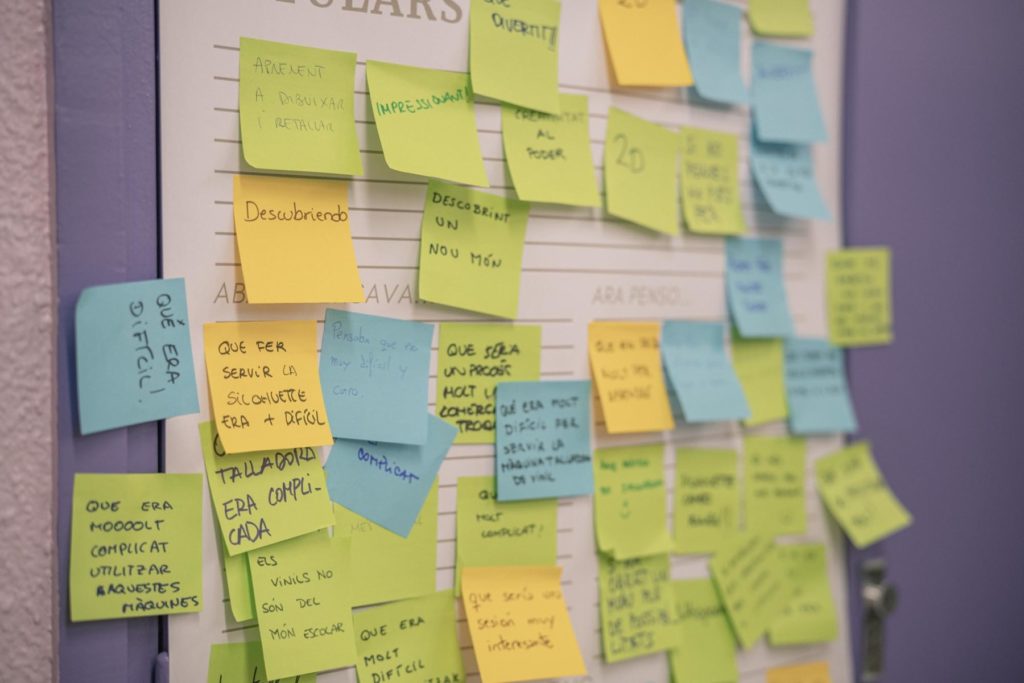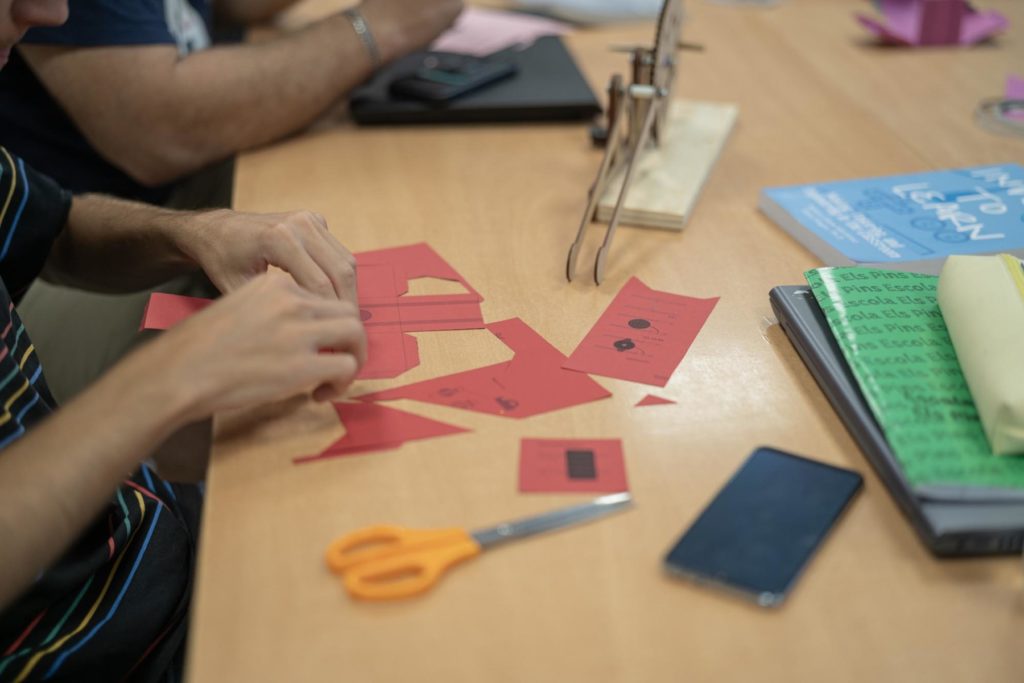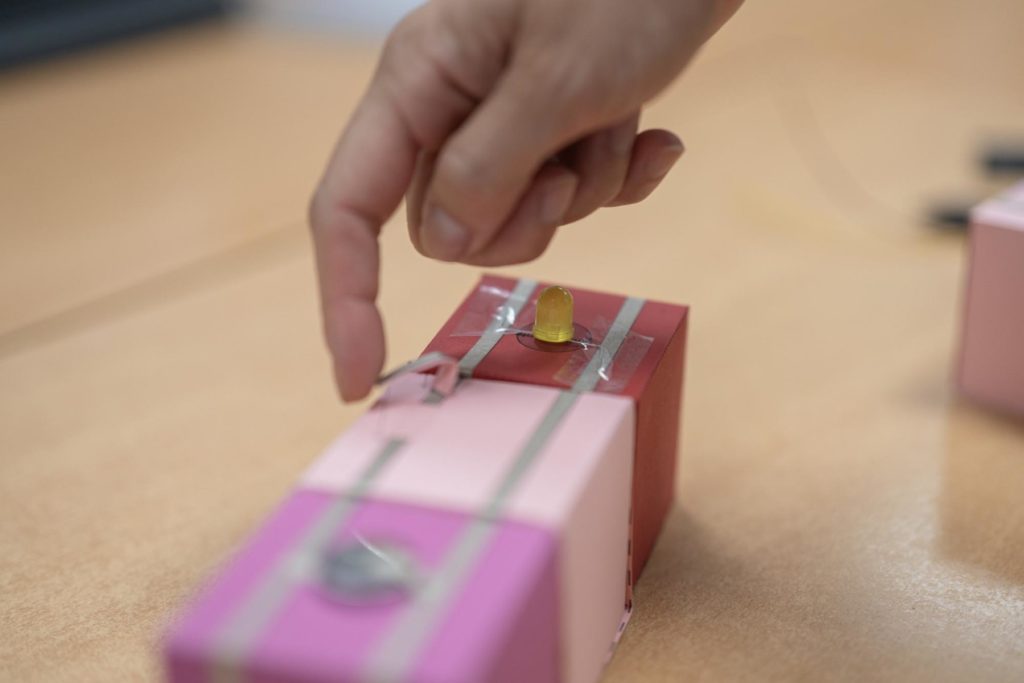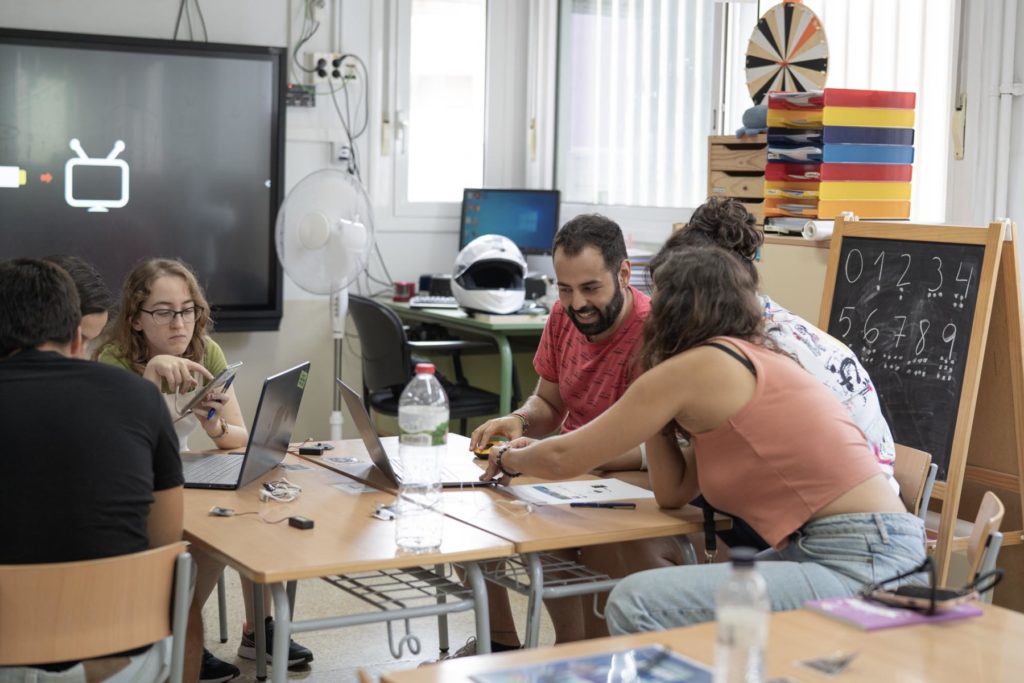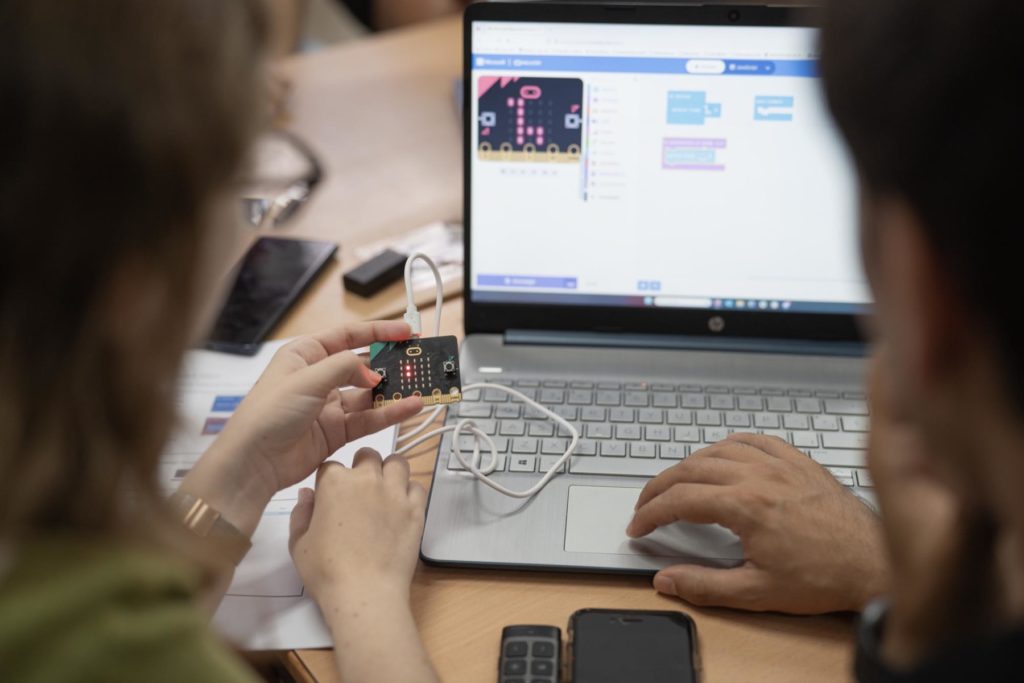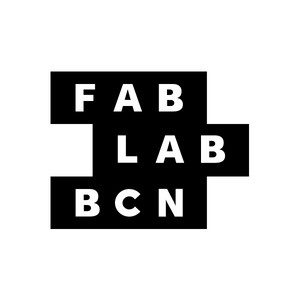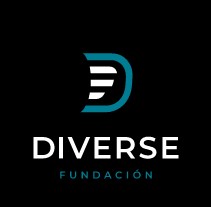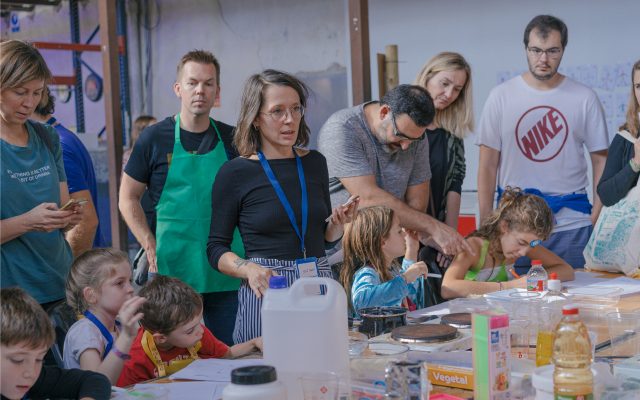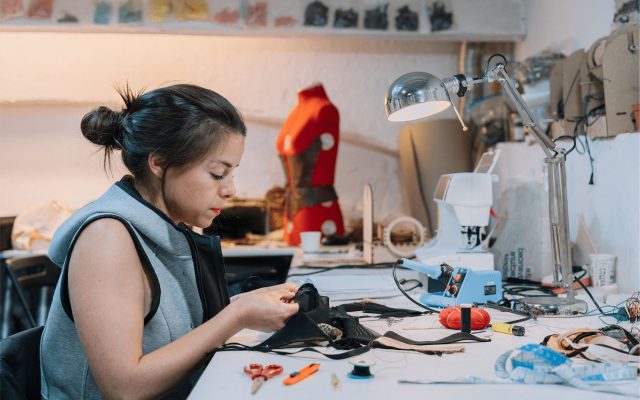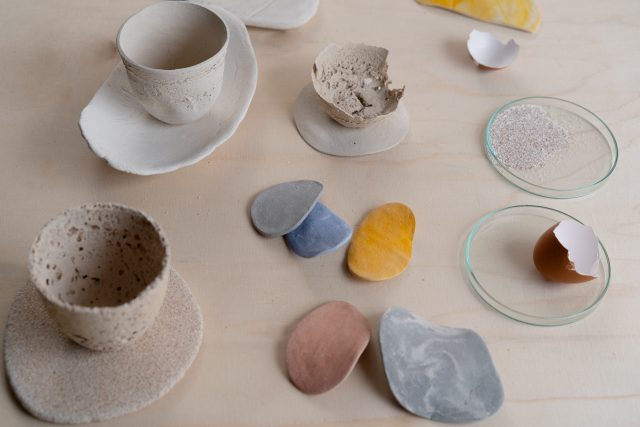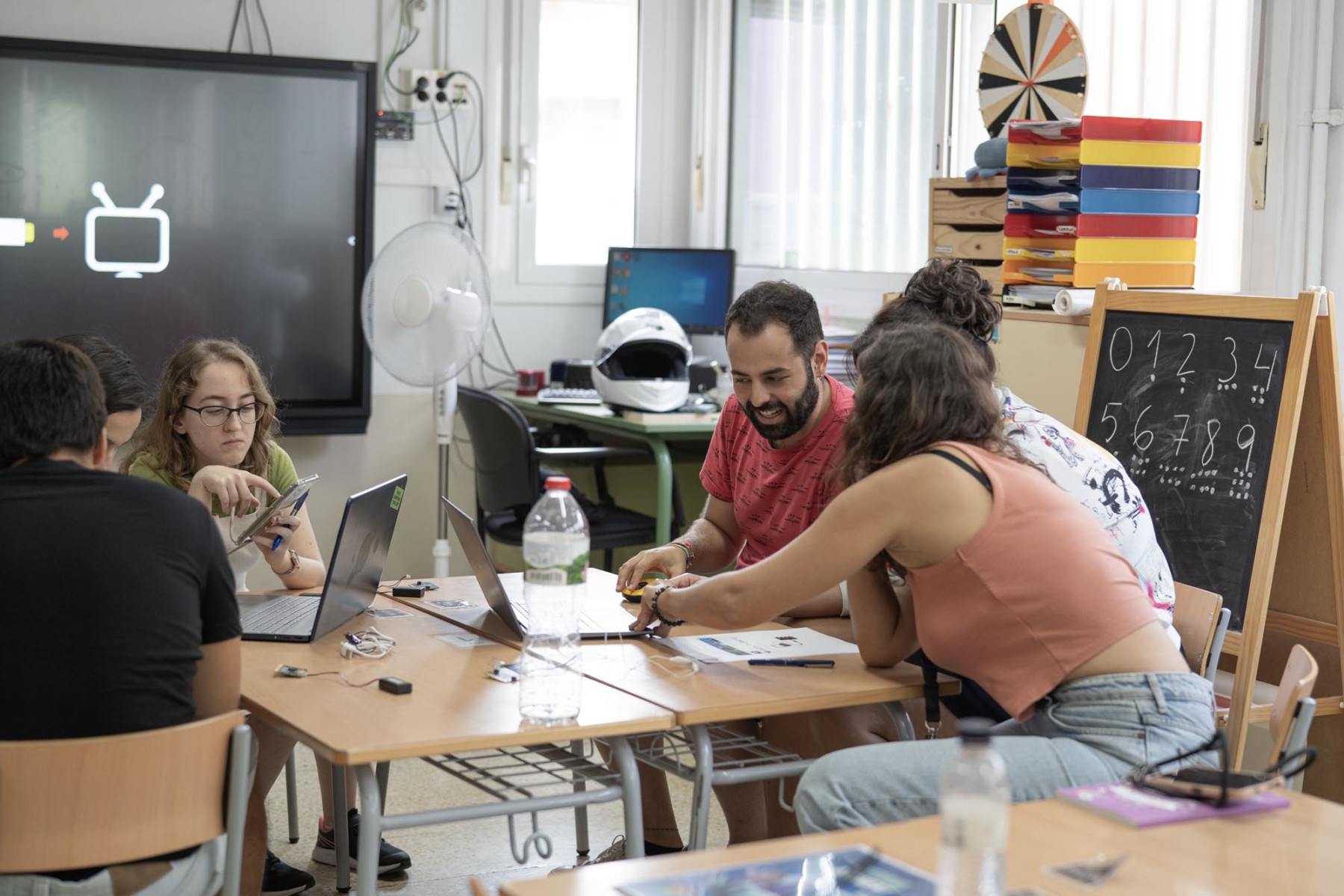

DTecla
DTECLA is an action-research project that aims to measure the effects of introducing maker-centered learning as a methodology for the development of key skills and curricular competencies, the improvement of learning and self-efficacy towards STEAM areas in Primary education students from highly complex schools.
The Challenge
Improve the self-efficacy of Primary education students towards STEAM (Science, Technology, Engineering, Arts and Mathematics ) areas, with gender perspective in high complex schools.
Our Solution
Design and implement a maker-centered learning framework for school managers, teachers and students for the development of key skills and curricular competencies, the improvement of learning and self-efficacy towards STEAM areas in Primary education from highly complex schools.
Type of Project
TECLA is an action research project funded by Fundación Diverse.
Project Outputs/Applied Technologies
A maker-centered learning framework based on methodological toolkit, teacher guidelines and open educational resources for Primary education schools.
The Project
TECLA is an action-research project that aims to measure the effects of introducing maker-centered learning as a methodology for the development of key skills and curricular competencies, the improvement of learning and self-efficacy towards STEAM (Science, Technology, Engineering, Arts and Mathematics ) areas in Primary education students from highly complex schools.
TECLA aims to answer the following questions:
- Can an intervention aimed at introducing maker-centered learning as an active methodology show a positive effect on the learning of STEAM areas in Primary education students compared to other educational methodologies?
- Can maker-centered learning with real-world application and gender perspective improve the self-efficacy of Primary education students towards STEAM areas compared to other more conventional strategies?
- Can maker-centered learning be used as a methodology to implement the Universal Design for Learning (UDL) and help give all students an equal opportunity to succeed ?
TECLA seeks to answer these questions from a systemic view of educational innovation, placing the student (Primary education) at the center of the intervention, accompanying them in their personal growth process and providing them with emotional competencies to generate intrinsic motivation and significant and lasting learning in STEAM areas.
Several studies such as STEAM4U, Raising self-efficacy in stem, a way to provide opportunities for all or ASPIRES 2: Young people’s science and career aspirations, age 10-19 of the UCL Institute of Education propose that in order to achieve good results in improving the knowledge, self-efficacy and perception of young people towards STEAM areas, the following should be done:
- Change the image of STEAM as elitist by making the knowledge, materials, tools and technologies associated with these areas accessible to everyone.
- Design STEAM interventions, teaching sequences and activities from a perspective of equity, inclusion and social justice.
- Connecting these interventions with STEAM professionals, including, in particular, women and minority groups.
- Generate a positive learning environment by fostering peer-to-peer, cooperative and collaborative learning in spaces that invite imagination, creation and experimentation.
- Build STEAM capital in students starting at an early age.
Our Contribution
Based on these recommendations, the TECLA team has designed a 3-year strategy of co-creation, training, accompaniment and support for each of the participating schools. It’s:
- To implement a research methodology to measure the impact of introducing maker-centered learning for the development of skills, competences, learning and self-efficacy towards STEAM starting in 3rd grade Primary education students. This includes interviews, pre- and post-tests of skills and knowledge with both students and participating teachers. Also the development of assessment and observation tools in the form of rubrics.
- Implementation of co-design and co-creation methodologies, between TECLA team and the school’s community (teachers and management staff), as a methodology for defining the intervention for the students.
- To train and accompany the teaching team that implements the intervention each year. This includes the creation of a team of specialist maker teachers to ensure the sustainability and continuity of the project after 3 years.
- Share with the educational community the TECLA Framework. It is teacher guides, the learning situations in the form of didactic sequences, assessment tools as well as the inventory of resources and technologies used.
- Involve the school’s management team in the implementation of the intervention through regular meetings, support actions for the teaching team, changes in the distribution of some of the school’s spaces and in making decisions that contribute to achieving the project’s goals.
Communication & Dissemination
- Solanas, O., Usart, M., Valls, C., Domínguez, X. (2022). Metodología STEAM-Maker en primaria: un estudio mixto. Publicado en el libro “Educación transformadora en un mundo digital: Conectando paisajes de aprendizaje” (pg 272-274) del XXV Congreso Internacional Edutec 2022. https://edutec2022.uib.es/libro-de-actas/
- Hanna Carrasco, C., & Valls Bautista, C. (2023). EDUCACIÓ MAKER A LES ESCOLES: CARACTERÍSTIQUES DEL PROCÉS D’IMPLEMENTACIÓ. UTE Teaching & Technology (Universitas Tarraconensis), (1), 9–29. Retrieved from https://revistes.urv.cat/index.php/ute/article/view/3461
- TECLA – Public Presentation Year 1 (2021/2022) : A summary in slides format with the goals, strategy, participants target and main results.
TECLA Network
TECLA is a project designed and led by Fundación Diverse and Fab Lab Barcelona with the collaboration of the following network of entities and individuals:
- Arget, Applied Research Group in Education and Technology.
- Associació Educativa Cadena.
- ArqueólogAs, Recovering memory: women’s journeys in the history of Spanish archaeology.
- Octavio Torres Gomariz, University of Alicante, Instituto Universitario de Investigación en Arqueología y Patrimonio Histórico, Post-Doc.
- Ariadna Farrés Basana, mathematician working at NASA.
- Mariona Badenas Agustí, PhD Student in Planetary Science, MiT.
To all of them, thank you very much for your creativity, professionalism and love for a job well done.
Who is it for?
High Complex Primary Education Schools
